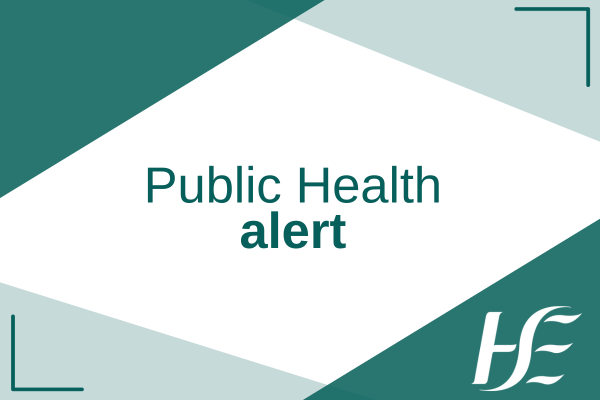HSE Mid-West media statement: HSE warning over high levels of respiratory illness

- Flu cases have quadrupled, concerning circulation of disease in community
- Appeal for people to avoid socialising if unwell, avail of flu and COVID-19 vaccinations
January 3, 2024: High levels of respiratory illness continue to circulate, and we are seeing increasing numbers of patients attending our EDs and subsequently being admitted due to respiratory symptoms.
The Mid-West region has been experiencing a surge in influenza (flu) and COVID-19 cases, hospitalisations, and outbreaks in healthcare settings in recent weeks. On the week of December 17, flu cases had quadrupled in the space of two weeks, which was the first major spike in the region this flu season. The incidence (case numbers) of flu will likely reach its peak in the next two to three weeks. In the intervening period pressures on the health service will increase including GP presentations, emergency department presentations, hospital admissions and outbreaks in long-term care facilities.
COVID-19 continues to circulate at high levels with, with slight increases in recent weeks. The JN.1 variant of interest is fast becoming the dominant strain. The variant may be more transmissible than previous variants, resulting in more infections. Consequently, this may contribute to more cases overall, again increasing demand for services and leading to outbreaks in healthcare settings.
While RSV (respiratory syncytial virus) is steadily declining following its peak in early December, it continues to widely circulate in the community. This poses a serious risk of bronchiolitis in young children and severe illness in older adults.
With acute respiratory illnesses, only a small proportion of cases will get tested. This means that all reported figures are expected to be substantially lower than the real incidence of disease circulating in the community. Based on provisional data, we believe there is concerning and widespread circulation of disease in the community.
Christmas and New Year social activity will likely lead to a further substantial increase in acute respiratory infections in the community. While we can anticipate this increase, we can significantly reduce this burden by staying at home or avoiding social activity if feeling unwell.
It’s not too late for anyone who has not yet been vaccinated for flu and COVID to get their vaccine if they're eligible because it will help prevent serious illness and it will help prevent the spread of these illnesses to people who are more vulnerable. You can go to the GP or pharmacy to get your vaccine, check the HSE website for more information.
| Infectious disease | Cases since October 2023 (up to Week of December 17) | Cases on week of Dec 17 (+/- difference) |
Influenza | 102 | 43 (+15) |
COVID-19 | 531 | 42 (+2) |
RSV | 445 | 57 (-20) |
*All data are provisional are subject to change and validation
Hospital and Community teams also continue to work hard to ensure our DTOC (Delayed Transfer of Care) patients are kept to a minimum and are well below our planned maximum target as of January 2nd.
HSE teams continue to work together to ensure that those patients who can be treated in alternative services are seen and avoid hospital admission and that a continuous focus remains on patient flow through our hospitals, with additional senior decision-makers on site. Hospitals are using appropriate private hospital beds, where available and community teams are providing support to ensure patients are discharged home or to other appropriate facilities, once they are clinically fit for discharge.
2023 was a record year for attendances at our Injury Units and Medical Assessment Units and it’s encouraging that awareness of these services has increased resulting in shorter waiting times for patients.
We again urge the public to avail of any other health services if they are unwell, including the GP, urgent out-of-hours service Shannondoc, injury units, and any other setting that avoids use of emergency departments if it's not clinically necessary or a life-threatening episode. More information is available at www.hse.ie.
Notes to editor:
On trolleys in an emergency department
On trolleys in a ward
Experiencing a delay in being discharged home or into care elsewhere
Using a bed as part of the hospital’s surge capacity

